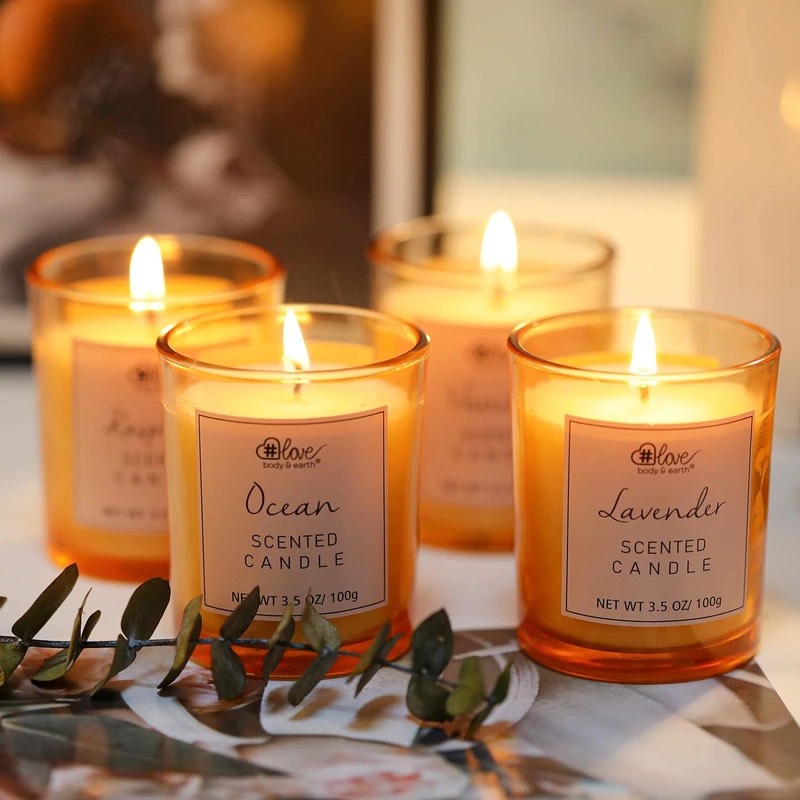
Have you ever experienced the warm smell of fresh-baked cookies, or an apple pie right out of the oven? Have you ever smelled a wildflower, a rose, a bouquet of lilies? Have you ever smelled the soothing scent of vanilla or the calming scent of lavender? And have you ever smelled any of these in the form of…a candle?
If your answer is yes, then you may have already experienced the benefits of aromatherapy, without even knowing it.
Aromatherapy is defined as “the use of aromatic plant oils, including essential oils, for psychological and physical wellbeing”.
For thousands of years, civilizations have utilized plants and herbs for their aromatic properties. Perfumes have played an important role in rituals. Incense has been burned and used as a powerful religious tool. And the use of fragrance and aromatherapy has been used for everything from enhancing our feelings of well-being, lifting our moods, and bringing a sense of ease, comfort, and love, into our homes.
Aromatherapy is thought to work by stimulating smell receptors in the nose, which then send messages through the nervous system to the limbic system (the part of the brain that controls emotions). Once the signal reaches this part of our brain, scientists believe there is a release of neurotransmitters, for example, serotonin, which results in the effect of increased relaxation and a boost in your mood. But that’s not all, certain scents can have different effects. Here’s a look at some of the most popular scents used in aromatherapy, and what they are known to affect.
Lavender: A soothing and relaxing scent, lavender has the ability to relieve anxiety, depression, and stress. It is used also to treat headaches and insomnia.
Citrus: Orange, lemon, and grapefruit all have powerful citrus scents that help to brighten the mood and increase concentration.
Vanilla: A sweet and warming scent, vanilla is soothing and comforting. It also helps to relieve stress.
Cinnamon: Known to help nerves, fatigue, and exhaustion, cinnamon has a very inviting scent that smells like freshly baked cookies.
Geranium: A scent that reminds people of being outdoors, geranium has a wonderful effect on the nerves, having calmative properties that help with relaxation.
Jasmine: One of people’s favorite scents, jasmine is calming and relaxing.
Sandalwood: Having some of the same benefits that people claim to receive from meditation, sandalwood helps soothe irritation and lifts depression.
Eucalyptus: With a minty and uplifting smell, eucalyptus helps decongest the nose and provides relief from colds, sinusitis, and allergies. It is emanated also to build energy.
Peppermint: A scent that everyone is familiar with, peppermint aroma candles can relieve muscle pain, headaches, and digestive problems.
A real aromatherapy candle contains natural essential oils instead of chemically derived oils. Candles that are labeled “parfum” or “fragrance oil” are indications that the candle is likely made with synthetic oils. The key to getting real results from aromatherapy is to use pure, therapeutic-grade oils, rather than oils made with synthetic ingredients. In fact, if an aromatherapy candle is not made with 100% natural ingredients and with pure essential oils, then it is not an aromatherapy candle.
Organically made aroma candles are slightly more expensive than regular candles, but they come with many more benefits than common fragranced candles. They burn less soot; they burn slower than most candles; and, their major benefit, they emanate a real sense of well-being. Organically made aromatherapy candles are time and time again, found to be healthy and healing.
That being said, burning candles is not something to be taken lightly, and there is a risk involved, however, this can be ameliorated with proper care and safety methods. These methods and precautions can be found here: